Psychology Classics On Amazon

Social Psychology
David Webb (Owner, writer & host of All-About-Psychology.Com)
"Social psychology is a science that studies the influences of our situations, with special attention to how we view and affect one another. More precisely, it is the scientific study of how people think about, influence, and relate to one another."
Elliot Aronson: The Power of Self-Persuasion
Brilliant talk by Elliot Aronson who outlines his vision of social psychology and how it applies to the world we live in and our everyday lives.
A world renowned social psychologist, Elliot Aronson received the American Psychological Association's Distinguished Scientific Contribution Award in 1999, making him the only psychologist in the history of American Psychological Association (APA) to have been awarded all three of the APA's major academic accolades; following his awards for distinguished writing in 1973 and distinguished teaching in 1980. Aronson's landmark book, The Social Animal, first published in 1972, is now in its 11th edition.
Pioneers in The History of Social Psychology
Kurt Lewin (Sep 9, 1890 - Feb 12, 1947)
A profoundly influential figure within the field of social psychology, Kurt Lewin demonstrated that experiments on groups could be conducted under precisely controlled conditions and in doing so pioneered the scientific study of group dynamics.
A prolific writer, Lewin authored several books and numerous articles which informed our understanding of group processes in relation to such things as productivity, communication, leadership, social perception, experiential learning and intergroup relations. Lewin also wrote widely on the concept of 'action research,' the term he coined to express his firmly held contention that key individuals being studied as part of a group research project, should themselves be encouraged to act as cooperating recorders, observers and analyzers.
Floyd Henry Allport (Aug 22, 1890 - Oct 15, 1978)
Floyd Henry Allport is widely considered to be the first psychologist to systematically study group processes and social relationships via the experimental method. A hugely influential figure within the field of social psychology, Allport's groundbreaking book 'Social Psychology' published in 1924 was instrumental in establishing social psychology as a legitimate field of scientific interest.
Muzafer Sherif (July 29, 1906 - Oct 16, 1988)
One of social psychology's most historically significant figures, Muzafer Sherif conducted influential research on a range of topics within the field including, social norms, perception, social judgment and attitude formation. It was, however, Sherif's interest in intergroup relations that led to his best known work, in particular, 'The Robbers Cave Experiment,' a classic exploration of prejudice and conflict, widely considered one of the most famous studies in social psychology.
In recognition of an outstanding career, Sherif received the American Psychological Association (APA) Distinguished Scientific Contribution Award in 1968 and the Distinguished Senior Social Psychologist Award from the Society for the Study of Experimental Social Psychology in 1978.
Marie Jahoda (Jan 26, 1907 - Apr 28, 2001)
An eminent social psychologist, Marie Jahoda conducted pioneering studies into racial prejudice, the authoritarian personality and the concept of positive mental health. Along with her first husband Paul Lazarsfeld, Jahoda also carried out groundbreaking research on the psychological impact of unemployment; culminating in 1933 with the publication of their landmark work on the subject, 'Marienthal: The Sociography of an Unemployed Community,' a social psychology classic.
In 1979 Marie Jahoda received the American Psychological Association (APA) Award for Distinguished Contributions to Psychology in the Public Interest and in 1980 was the recipient of the prestigious (APA) Kurt Lewin Award, presented for 'outstanding contributions to the development and integration of psychological research and social action.'
Leon Festinger (May 8, 1919 - Feb 11, 1989)
Renowned for his unique and innovative laboratory methods of studying social situations, Leon Festinger's theory of cognitive dissonance has had an enduring impact on the development of experimental social psychology. In 1957 Festinger's classic book 'A Theory of Cognitive Dissonance' was published. Based on the premise that inconsistency between beliefs or behaviors (cognitions) creates a state of psychological tension, which in turn results in a motivational drive to reduce such cognitive inconsistency; cognitive dissonance dominated research within experimental social psychology well into the 1960's.
Among his many professional accolades, Festinger received the American Psychological Association (APA) Distinguished Scientific Contribution Award in 1959 and was elected to the National Academy of Sciences in 1972.
Robert Zajonc (Nov 23, 1919 - Dec 3, 2008)
Robert Zajonc explored a range of topics within multiple sub-fields of psychology; including groundbreaking research into how the presence of others influences performance (social facilitation,) the effect of birth order on intellect and the effects of repeated exposure on liking and preference ("mere exposure" effect.)
In recognition of his influential body of work produced over five decades, Robert Zajonc received the American Psychological Association Distinguished Scientific Contribution Award in 1978 and the Society for Experimental Social Psychology Distinguished Scientist Award in 1986.
Stanley Milgram (Aug 15, 1933 - Dec 20, 1984)
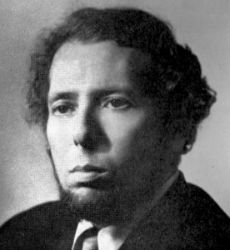
The enigmatic Stanley Milgram is best known for conducting a series of the most notorious and controversial experiments in the history of psychology; which were designed to explore the extent to which people would be willing to obey an experimenter's orders to administer 'electric shocks' as a form of punishment in a 'learning exercise.'
In 1963 Milgram published a number of papers documenting the disturbing finding that 65% of his subjects obeyed orders from an authority figure to inflict severe levels of pain on someone else, a finding he examined in detail in 1974 in his classic book 'Obedience to Authority.' Milgram's work on obedience not only raised serious questions about research ethics but was also challenged on methodological grounds, most notably in relation to his very small sample size and the fact that the infamous 65% obedience level figure was based on just one out of 24 experimental variations. Despite this, Milgram's work still ranks among the most influential areas of social psychological research.
A truly original thinker, Milgram also conducted fascinating research into such things as the 'small world' phenomenon, the effects of televised antisocial behavior and the experience of living in cities.'
Quality Social Psychology Resources
This classic case study in prejudice devised by third-grade school teacher Jane Elliott in 1968 is just as compelling today.
CLICK HERE for comprehensive information and video footage of the blue-eyed brown-eyed exercise. Powerful stuff!
Critical Social Psychology: Understanding Ourselves and Others
"We live in a complex, fast changing and highly social world. One of the most compelling questions we face is how to understand ourselves and other people. Why do we do what we do, say what we say? Do we really make choices or are we limited by forces and pressures which we may be barely aware of? There are no easy answers, but social psychology has developed a number of fascinating ways of thinking about and researching into the self in relation to others. Each of these ways of thinking is based on distinctive sets of ideas about the individual in a social context."
Thanks to The Open University you can explore these ideas online via their free online course. CLICK HERE to check out this brilliant resource.
This Psychology Symbol - Vintage Retro Striped Sunset T-Shirt is available from Amazon (prime eligible) in a range of colors for women and men. Sales help support this website, which has been providing free and comprehensive information and resources for psychology students and educators since 2008.
Recent Articles
-
All About Psychology
Apr 15, 25 10:41 AM
A psychology website designed to help anybody looking for detailed information and resources. -
Billy Milligan Case Study: Psychology, Crime, and the Split Mind
Apr 15, 25 08:02 AM
Was Billy Milligan a fractured victim—or a manipulative genius? This Billy Milligan case study explores the psychology behind one of history’s most controversial trials. -
Cute Aggression Explained: Why We Want to Squeeze Adorable Things
Apr 09, 25 01:24 PM
Overwhelmed by cuteness? Discover the science behind cute aggression, the brain's quirky way of handling too much joy. You’ll never see cute the same again.
Please help support this website by visiting the All About Psychology Amazon Store to check out an awesome collection of psychology books, gifts and T-shirts.
Go To The Types of Psychology Page
Go From Social Psychology Back To The Home Page

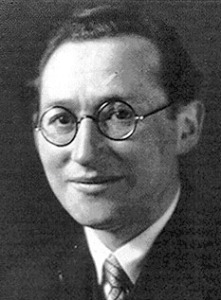
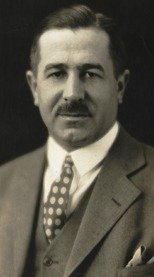
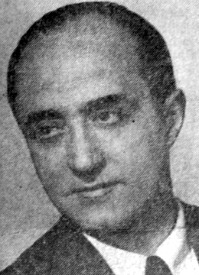
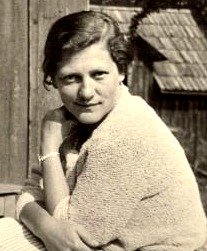
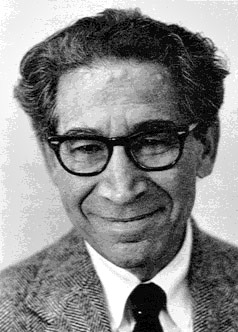
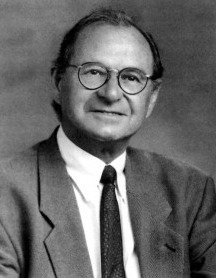








New! Comments
Have your say about what you just read! Leave me a comment in the box below.